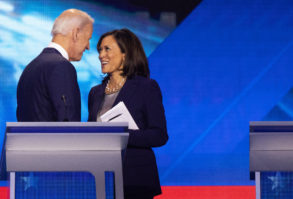As I write about the rhetorical situation for a project I am working on, I think Lloyd Bitzer, the author of the famous article The Rhetorical Situation, would definitely call Rep. Anthony Weiner’s twitter incident a significant rhetorical exigency. The media has been discussing Weiner’s inappropriate tweeted photo for days now. Today he FINALLY admitted it was not a hacker who sent a lewd picture of himself to a young woman over Twitter.
Rep. Weiner had the chance to come forward immediately and apologize for what he sent over the Internet. Unfortunately, he did not take advantage of the rhetorical situation and let the media take over the rhetorical situation. Politicians can learn from Weiner because obviously Weiner did not learn from President Clinton’s lie that he did not have sexual relations with that woman. In this case the famous line would be, “I did not tweet that picture!” History seems to repeat itself quicker than usual these days thanks to social media. The lesson from Clinton and Weiner should be: Don’t lie–just tell the truth! It saves the media and the audience time.
Soundbite after Soundbite, and Weiner joke after Weiner joke, the audience had to listen to another political figure lie to our faces. As spectators to this weird story, we all probably thought he was lying from the beginning. Why do you think the media latched onto this story and wouldn’t let go? We just wanted the truth because Rep. Weiner was not formulating a logical argument.
Rep. Weiner’s ethos kept waning. And, as Aristotle pointed out thousands of years ago, if you don’t speak with good intentions, the audience will eventually find out. Rep. Weiner is another example of how important ethos and logos is to an argument. The audience only heard an emotional appeal of anger and anxiety coming from Rep. Weiner that expressed no logical explanation to how the photo was sent from his Twitter account.
Weiner says it was a mistake to lie to the public. Yes it was. It’s because of politicians like Rep. Weiner that I do not take politicians that seriously. I wonder what our founding fathers would think of such behavior of Weiner’s. I’m thinking our founding fathers would be thankful their indiscretions were not as public as what politicians’ indiscretions are now. I’m sure the founding fathers if asked would rather have had their political pamphlets than to have dealt with the likes of Twitter or Facebook in today’s world.
It astonishes me in these digital times that politicians actually think they can get away with such behavior. The credibility and image of a United States Senator and a House of Representative should be honored by the elected official. The American public WANTS to support the ones that represent us. Did these politicians not study rhetorical situations and how ethos is an important component to representing the American citizen? I think most people, even politicians, underestimate the power of emerging media. Emerging media can silence a person and disempower them, such as the case with Rep. Weiner.
What we can learn for Weiner’s use of Twitter?
We can learn that Twitter is not a pick-up joint. Twitter is for sharing information, not body parts. Twitter can empower and disempower. Twitter is a public forum that goes beyond the walls of your own home. Twitter is a powerful medium that can engage and inform people from around the world about events and issues as well as crush another’s credibility. Twitter can take the rhetorical situations: exigence, audience, and constraints and CAN elicit change as Bitzer described in his famous article The Rhetorical Situation. I’ve seen the power of change within Twitter. I’m so happy that Twitter outed a bad seed in politics and allowed Weiner’s constituents to see how he misused his power. Mistakes can happen over social media if you do not fully understand how to use it for leverage rather than hapless mistakes.
Social media is a rhetorical space where you can be persuasive, be artistic, be objective, and be expressive. What you say matters. Social media is a participatory media and when something like an inappropriate picture is out in cyberspace due to a mistake–the audience will take action and respond. Either the politicians can seize the rhetorical situation to hinder any more criticism or they can look seedy and wimpy as Rep. Weiner did. He may say he wants to stay in office, but his ethos has diminshed in the eyes of his colleagues and his constituents. I only ask that our politicians give us the courtesy to admit to their wrongdoings and apologize, especially if the politician’s name is Weiner.




2 comments On The Weiner Situation-How Twitter Disempowers
Pingback: Teaching Carnival 4.11 - ProfHacker - The Chronicle of Higher Education ()
Pingback: Social Media Use in Moderation - Logan Williamson, LPC ()